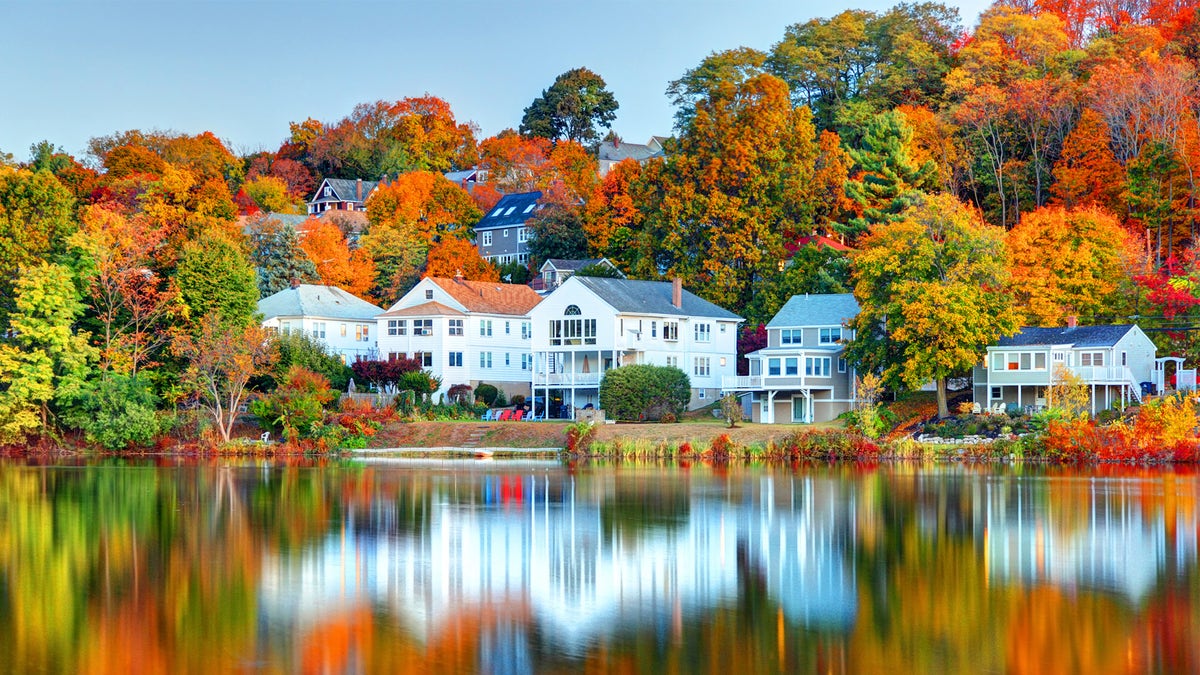
autumn-homes
Spring might be the most popular time to buy a home, but there's a real case to be made for fall: It's cooler, so you'll have less competition at the open houses. Because it's considered the off-season, you're more likely to get (or make) a deal. And, with the season's variable weather, you can get a good idea of what the home's like in hot and cool times alike.
After all, you're buying a home that will fit your needs in every season -- even if you can only scope it out during one.
That means you need to look for things "that aren't as noticeable in the fall as they might be in the winter or summer months," says Realtor Andrea Davitt of Lauer Realty Group in Madison, WI.
Want to make sure that amazing autumnal escape continues to be fantastic year-round? Keep these six things in mind.
1. Check out the air conditioner
First: Does the place even have an air conditioner? This might be easy to spot if you're house hunting during unseasonably warm temps. But if the weather's already turned, heed this: The air might be cool now, but it won't be forever. And with summer nine (long!) months away, it's easy to forget to check.
If the home does have AC, you'll want to give the unit a thorough inspection. Your inspector will likely examine the system to make sure it's functioning, but it never hurts to run a few tests yourself -- or even call an HVAC specialist.
Davitt recommends first checking to see if the AC's filter has been recently changed. Then try turning down the thermostat and see if the unit runs. Meanwhile, make sure air is blowing through all the vents -- it's better to find blockages now, with time to fix them, than at the beginning of summer when sweat's starting to pool. Check out the outdoor condenser, listening for any strange sounds, and make sure the condensation line in the evaporator coil -- likely found in the furnace -- is flowing smoothly. Last, examine the ductwork, looking for any rusting or poor fittings.
2. How's the drainage?
Gutters are the obvious thing to check, Davitt says. In the interlude between the rainy and snowy seasons, don't forget to check the drainage. Try going out to see the house on a rainy day, if possible, or just turn on all the faucets at once and look for leaks.
If it looks like the sewer might be clogged, bring out a professional sewer inspector to do a camera inspection of the line. That can reveal problems that could cause a backup -- as well as a world's worth of annoyances later. Better to know before you buy.
3. Note the surroundings
What's nearby? Look across the street, behind you, and next door. Are there bulldozers and cranes? Empty lots awaiting brand spankin' new homes? Ask your neighbors about seasonal street construction nearby -- there's nothing worse than having a peaceful, quiet home all winter until work begins with a literal bang in the spring.
Double up on the investigative work if you're near a large intersection, or if your home is directly connected to a major road. Going door to door is not only a good way to meet your future neighbors -- it's also a novel way to find out what seasonal surprises lay ahead.
4. Look for slopes
How steep is your driveway? Sure, it's easy to navigate now -- but will it be when it's covered in ice?
A less-than-ideal driveway shouldn't automatically disqualify a home, but it's better to know in advance if late-winter parking is going to be a challenge.
Similarly, Davitt recommends checking out the landscaping's pitch around your new home's exterior. Are there any steep hills that might cause water runoff and flooding? What about the area around your basement? If land slopes toward your basement, it could indicate potential flooding.
5. Check out standing water
At the end of the summer, we're all just happy that the mosquitoes have died or moved on to bother poor souls elsewhere. But they'll be back -- and you should know in advance where they'll be hanging out.
"We'll look for anything that holds standing water," Davitt says.
Most of these are movable: trash cans, buckets, birdbaths. But if your home is located on a lake or small pond, there's not a whole lot you can do besides prepare yourself mentally and invest in bug spray and citronella.
If you're buying in fall or winter, when bugs are hiding, keep in mind the potential ramifications of living on the water.
6. Examine the windows
If the windows in your potential home are older (or don't even open), you'll want to replace them immediately -- otherwise you risk wasting energy or even breaking them in a freeze.
But if winter is coming quickly, there might not be time. In those cases, Davitt recommends putting plastic over the windows until you're in a position to replace them.
Will you need storm windows? Find out in advance.
"If you've only lived in an apartment, you don't know you have to change out your screens," Davitt says.
That can be an added expense and stressor, and one that's better to know in advance.
Don't let fall's peaceful, chilly weather lull you into a false sense of security. When you're buying a home, examine everything that can go wrong -- even if the rainy winter or spring seem far away.